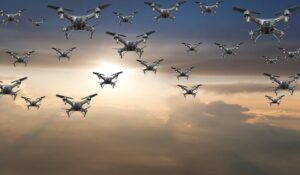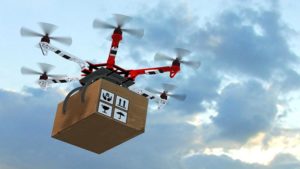What this CEO learned from living The Hurt Locker in real life

Pic: gorodenkoff / iStock / Getty Images Plus via Getty Images
Before he was the CEO of drone-killer Department 13, Jonathan Hunter defused bombs for a living.
“My background is that I did four tours to Afghanistan and one to Bosnia,” he said.
“I’m a former counter-IED (improvised explosive device) or EOD officer — explosive ordinance disposal. So if you think The Hurt Locker, that’s what I did in my previous life.”
Mr Hunter spoke to Stockhead about his newest technology patent, which is designed to make Department 13’s (ASX:D13) counter-drone technology invisible to its targets.
But he also shared the lessons he learned disarming explosives in the military, and how they have proven useful in the business world.
“Operational patience and situational awareness — those are the two things that I’ve taken out of the military and put them into a business environment,” Mr Hunter said.
“I think they’re just as critical in business as they are in the military.”
Operational patience
For Mr Hunter, operational patience has been key to understanding the time and effort it takes to turn a prototype into a finished product, and keeping a cool head through the process.
“With the public market sector you have to have the patience to understand how the market is flowing and how your operations are going to meet in the middle,” he said.
“So many times there are areas where people will jump off a cliff, or they will react to something as opposed to staying the course.”
One of the selling points of Department 13’s MESMER anti-drone system is that its software can be updated to work with new drones as they come onto the market and into the air. But it comes at a cost.
“It’s not easy to do what we’re doing. It’s kinda hard,” Mr Hunter said.
But Mr Hunter was confident MESMER would be what customers needed by the time it was ready for market.
“We know that a software-based solution is what’s required for 80 per cent of the use cases in counter-UAS (unmanned aerial system),” he said.
“But then you have to build it out — it’s hard. So you have to have the operational patience to understand that.”

Situational awareness
The other military skill that’s benefited Mr Hunter and Department 13 is the ability to stay aware of changing circumstances and anticipate what will happen next — in both the commercial and government sectors.
“You have to be situationally aware of what congress is doing. You have to be situationally aware of what your competitors are doing. You have to be situationally aware of what the market is doing,” he said.
When Mr Hunter started working on MESMER, there was no guarantee people would even be allowed to use it. But he bet on the fact they’d need to eventually.
That led Mr Hunter to start figuring out how to take down a drone, at a time when other people were still focused on simply detecting them.
“If you’re building a system that doesn’t include a capability to mitigate a drone in a commercial environment because you’re saying ‘they’re never going to allow this to happen’, then you’re not watching the market,” he said.
“You’re not listening to the regulatory agencies that are looking at this and understanding that this poses a high security threat to commercial companies, to the AFL, to the rugby matches. It’s going to happen.
“From our end, we’re getting commercial customers to our door probably about once a week… and they’re not asking for detection of drones, they’re asking ‘well, how do I mitigate the threat?’”
Department 13 listed on the ASX in January last year through a reverse takeover of Kunene Resources.
Earlier this year it completed its first sale of MESMER to an Australian customer, which was rumoured to be a government agency.
The company’s shares have traded between 8c and 19c over the past 12 months. It spent $2.5 million in the quarter to June, leaving $4.9 million in cash, and expects to spend $3.6 million in the current quarter.
UNLOCK INSIGHTS
Discover the untold stories of emerging ASX stocks.
Daily news and expert analysis, it's free to subscribe.
By proceeding, you confirm you understand that we handle personal information in accordance with our Privacy Policy.








